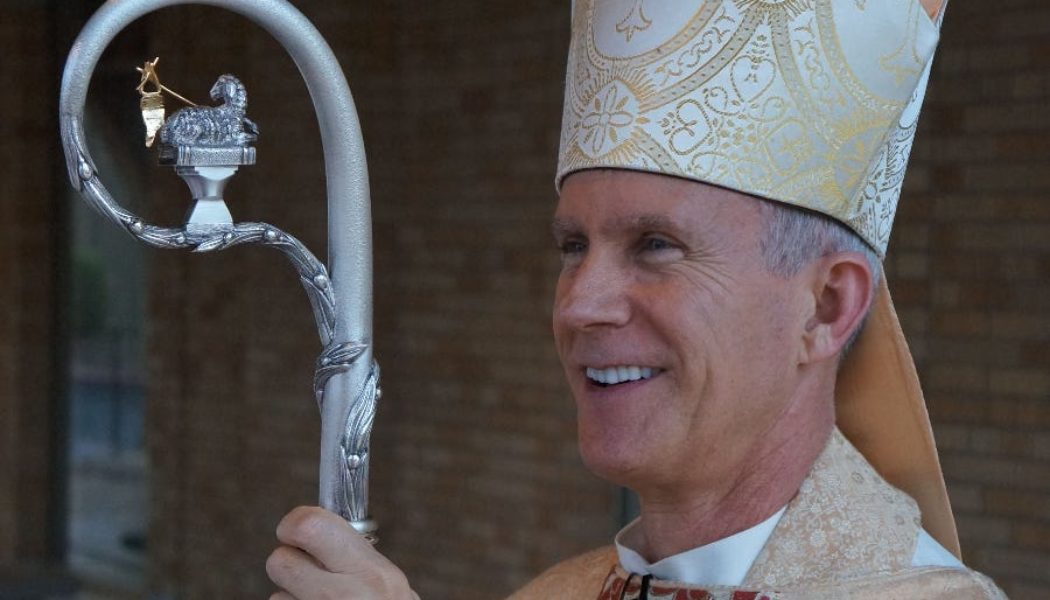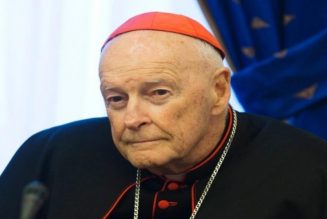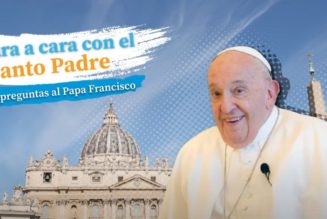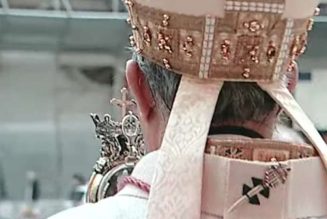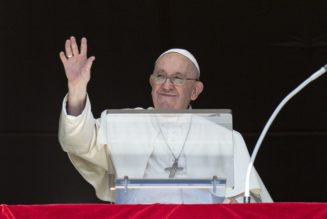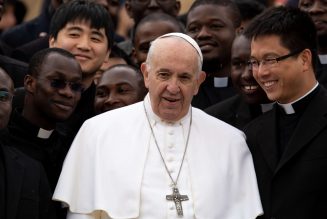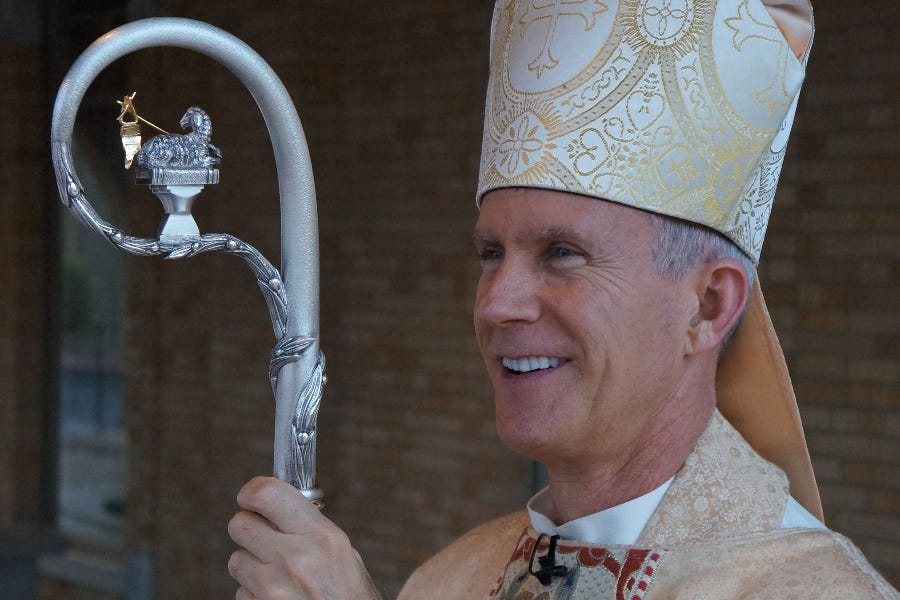
In a canonically rare step, Pope Francis has removed Bishop Joseph Strickland as the Bishop of Tyler, Texas, the Vatican announced Saturday.
The Holy See press office gave no reason for the decision but said in a Nov. 11 statement that Austin’s Bishop Joe Vásquez would serve as apostolic administrator of the diocese serving around 120,000 Catholics in eastern Texas.
Strickland, who at the age of 65 is 10 years below the customary retirement age for diocesan bishops, has been a vocal critic of the Church’s direction under Pope Francis, often expressing criticisms of the pope on social media.
The bishop’s removal from office comes two months, to the day, after The Pillar reported that senior cardinals had recommended to Pope Francis that Strickland be pressured to resign leadership of his see following an apostolic visitation of the Tyler diocese earlier this year.
In a May post, the bishop said that he believed that Pope Francis is the pope, “but it is time for me to say that I reject his program of undermining the Deposit of Faith.”
The bishop, active on Twitter, renamed his account on the site Nov. 11 to @BishStrickland, removing reference to the Tyler diocese.
Cardinal Daniel DiNardo, who has oversight of the Diocese of Tyler as it belongs to the ecclesiastical province of the Archdiocese of Galveston-Houston, said Nov. 11 that the pope had ordered an apostolic visitation of the Tyler diocese in June.
DiNardo said that the visitation, conducted by Camden’s Bishop Dennis Sullivan and Tucson’s Bishop Emeritus Gerald Kicanas, consisted of “an exhaustive inquiry into all aspects of the governance and leadership of the Diocese of Tyler.”
“As a result of the visitation, the recommendation was made to the Holy Father that the continuation in office of Bishop Strickland was not feasible,” the cardinal said.
“After months of careful consideration by the Dicastery for Bishops and the Holy Father, the decision was reached that the resignation of Bishop Strickland should be requested.”
“Having been presented with that request on Nov. 9, 2023, Bishop Strickland declined to resign from office. Thereafter, on Nov. 11, 2023, the Holy Father removed Bishop Strickland from the office of Bishop of Tyler.”
Strickland’s removal from office by the pope follows a Sept. 9 meeting between Pope Francis and Cardinal Robert Francis Prevost, O.S.A., head of the Dicastery for Bishops, and Cardinal Christophe Pierre, apostolic nuncio to the United States to discuss the apostolic visitation’s results.
The Pillar reported in September that the cardinals conveyed a recommendation to the pope that Strickland be asked to resign from office in light of the results of the apostolic visitation of the Tyler diocese.
“The expectation is that the Holy Father will be requesting his resignation,” The Pillar quoted an official from the Dicastery for Bishops as saying.
“The consensus in the dicastery is that he will be asked to consider resigning,” the official said at the time, citing two separate areas of concern with Strickland’s ministry.
“There is the matter of the public scandal from all these comments about the pope and the synod, but there are also real problems in the diocese. Those were the focus of the visitation; there are concerns in the diocese about governance, about financial matters, about basic prudence,” the official said.
The apostolic visitation included questions about the governance of a diocesan high school, considerable staff turnover in the diocesan curia, the bishop’s welcome of a controversial former religious sister as a high school employee, and the bishop’s support for “Veritatis Splendor” — a planned Catholic residential community in the diocese, which has struggled with controversy involving its leadership’s financial administration and personal conduct.
Sources familiar with the investigation have previously told The Pillar that diocesan officials and clergy interviewed as part of the process were asked about the possibility of Strickland stepping down and canvassed for their views about suitable possible successors.
Even when a diocesan bishop has faced a formal investigation under the norms of Vos estis lux mundi, he is usually asked to resign, rather than see the pope remove him from office, in part because of the canonical presumption of his right to office.
But there have been exceptions.
In 2011, Pope Benedict XVI “relieved” Bishop William Morris of his office as Bishop of Toowoomba, Australia, after years of back-and-forth between the bishop and the Vatican, which included an apostolic visitation of the diocese, kicked off by a pastoral letter from Morris in which he called for the Church to consider ordaining women to the priesthood — something the Church teaches is a sacramental impossibility, and which Catholics are obliged to “embrace and retain.”
A person who rejects a teaching on this level, according to canon law, is “opposed to the doctrine of the Church.” Part of the question was whether Morris had done enough to incur a formal canonical penalty, or just skirted close to the line.
In 2021, the Holy See announced that Pope Francis had “relieved” Bishop Daniel Fernández Torres of the “pastoral care of the Diocese of Arecibo” in Puerto Rico after that bishop had, like Strickland, refused demands for his resignation.
No official reasons were given for Torres’ removal, though the bishop called his privation “totally unjust.”
Strickland was the fourth Bishop of Tyler. He was ordained a priest of the Diocese of Dallas in 1985, but joined the presbyterate of the Diocese of Tyler in 1987, shortly after the diocese’s creation from the dioceses of Dallas, Beaumont, and Galveston-Houston.
He became vicar general of the Tyler diocese in 2010 and was named its bishop by Pope Benedict XVI in 2012.
The diocese comprises 33 counties and 23,443 square miles in Northeast Texas, with a total population of around 1.5 million. It has 52 parishes and 14 missions. It had 79 priests in 2020.
Comments 106
Services Marketplace – Listings, Bookings & Reviews
